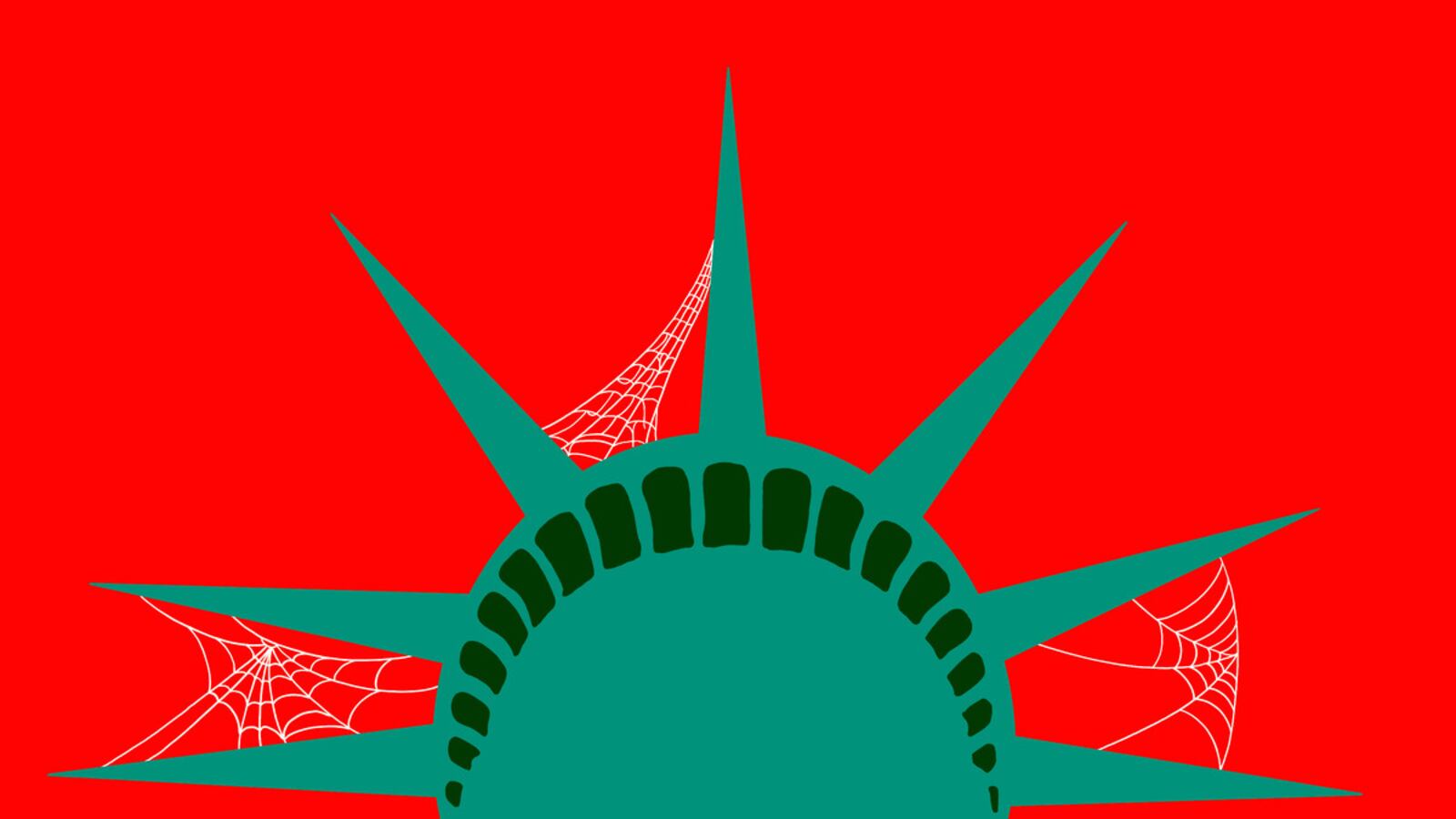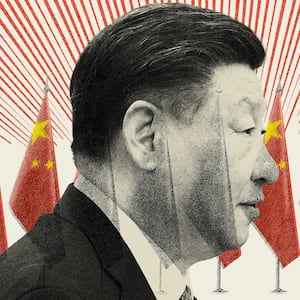To paraphrase the old showbiz maxim, global conflict is easy, alliances are hard.
This week has reminded us of that as several deep and important global friendships of the U.S. have been sorely tested. More worrisome perhaps, is that they may be a sign of things to come for us in a world in which we are no longer the only global superpower and our principal rival, a global bloc led by China, is seeking to build up its own networks of influence.
The ties of the United States to France date back to the American revolution. France is often cited as our oldest ally. But this past week, as French President Emmanuel Macron visited China and returned to wax eloquent about Europe’s need to chart its own course with Beijing. He worried aloud that Europe was at risk of being a “vassal” to the United States and that it should reduce its dependence on the U.S. dollar. He further added that Europe should chart a different course from the U.S. with Taiwan, saying, “The worst thing would be to think that we Europeans must become followers on this topic and take our cue from the U.S. rhythm and a Chinese overreaction.”
The remarks triggered a firestorm of public criticism of Macron and deep private unhappiness within the Biden Administration. One senior official told me he was “deeply disappointed” in Macron’s comments. Another said to me the remarks were “very unhelpful,” and that they must have “delighted Xi Jingping.” It is fair to say that across the administration officials were very unhappy with Macron’s performance.
The U.S. grumbling, however, was clearly music to Beijing’s ears. Macron, for example, was treated royally by the Chinese while European Commission President Ursula von der Leyen, who also visited Beijing at the same time and who articulated a line more in keeping with US and mainstream European views, got a much chillier reception. And while this could be seen as more fecklessness from the French leader (who in the past has been seduced into seeing himself as the one statesman who could reason with Vladimir Putin) it is also an illustration of the world Beijing hopes its ascendancy will help shape.
This is a world in which the U.S. and China are engaged in a constant competition for influence, in which the American or “Western” way is no longer seen as the dominant voice in global affairs as it has been since World War II and especially since the fall of the Soviet Union. As was well-articulated in a thoughtful Twitter thread (oxymoron alert) from Gabrielius Landsbergis, the foreign minister of Lithuania, “Xi is trying to create an alternative to Pax Americana, realigning as many countries as possible under a new order, Pax Sinica.”
It might fairly be argued that it is perfectly reasonable to expect a country like China with its history, size, economic clout and power to seek greater influence and indeed, to be a dominant force in shaping the global order. That said, it is also clearly the case that the Chinese view of what that order should be will be at odds with the prevailing U.S and Western view in many respects and in those areas it will clearly be in the interest of the U.S. and our allies to seek to counter Chinese efforts. Where agreement is possible, greater stability will follow. Where differences are deep, it will be threatened.
This competition is likely to define global affairs in the decades ahead and to test America’s alliances and the strength of many global institutions. What is striking however, is how quickly China has begun the process of actively seeking a global leadership role and how open countries that have long had close ties to the U.S. have been to the idea of encouraging and taking advantage of a little superpower competition.
The U.S. is used to laying down the law internationally, setting standards, making its support conditional on its priorities, and that is the kind of pressure under which other nations often bristle. Now, it is clear, nations are gradually feeling less constrained by the rules the U.S. sets. That was made clear as the trove of classified documents that made its way onto the Internet this week included the revelation that one of the biggest recipients of U.S. aid, Egypt, had actually been considering supplying significant quantities of weapons to China’s junior partner Russia to aid in their war against Ukraine.
While the plan did not come to fruition, it should lead the U.S. to reconsider future aid to Egypt… although we can be quite sure that if it does, other states sympathetic to Team China-Russia will step in to close the gap. And that is the new calculus in geopolitics in a nutshell.
Recently, of course, we have seen Israel, the biggest recipient of U.S. aid, also straddle the fence on Ukraine as have other states in the Gulf that in the past have painted themselves as close friends of the U.S. Throughout the Middle East, a region in which most major countries now count China as their number one or number two trading partner, the smart strategy appears to be to gain latitude and leverage by not choosing sides in the global competition between the U.S. and China.
(The complications associated with this new era are underscored by another hiccup that occurred as a consequence of the classified documents leak, the revelation that the U.S. has been spying on some of our close allies, such as South Korea. This will not send South Korea running into Chinese arms anytime soon. But it does suggest that the sense of entitlement and impunity we felt while we were the only superpower in town may have to be dialed back and more thought given to how we maintain alliances.)
In fact, while the U.S. has devoted considerable attention to the rise of China and the future of the rivalry, even more attention will be required as China ramps up its efforts to woo the non-aligned and to create splits à la Macron within core U.S. alliances. This new era will not be won by containment or military preparedness alone. We will have to communicate, amplify, and seek to enhance the benefits of being aligned with us and with our views and values. We can assume nothing except that China will seek to offer itself as an alternative to those who are wary of dependency on the U.S. or who are tired of lectures from the U.S.
While I strongly believe we should not view ourselves as entering a new Cold War with China—we have too many shared interests and interdependencies for that—I do think we will have to harken back to the days of the Cold War when public diplomacy and active, intentional, detail-oriented, country-by-country, region-by-region work at alliance building and maintaining worldwide is further prioritized. That will have to be a hallmark of U.S. foreign policy in this new era if we are to succeed and rebuff threats to the international system that will weaken it or put our security or interests at risk.






